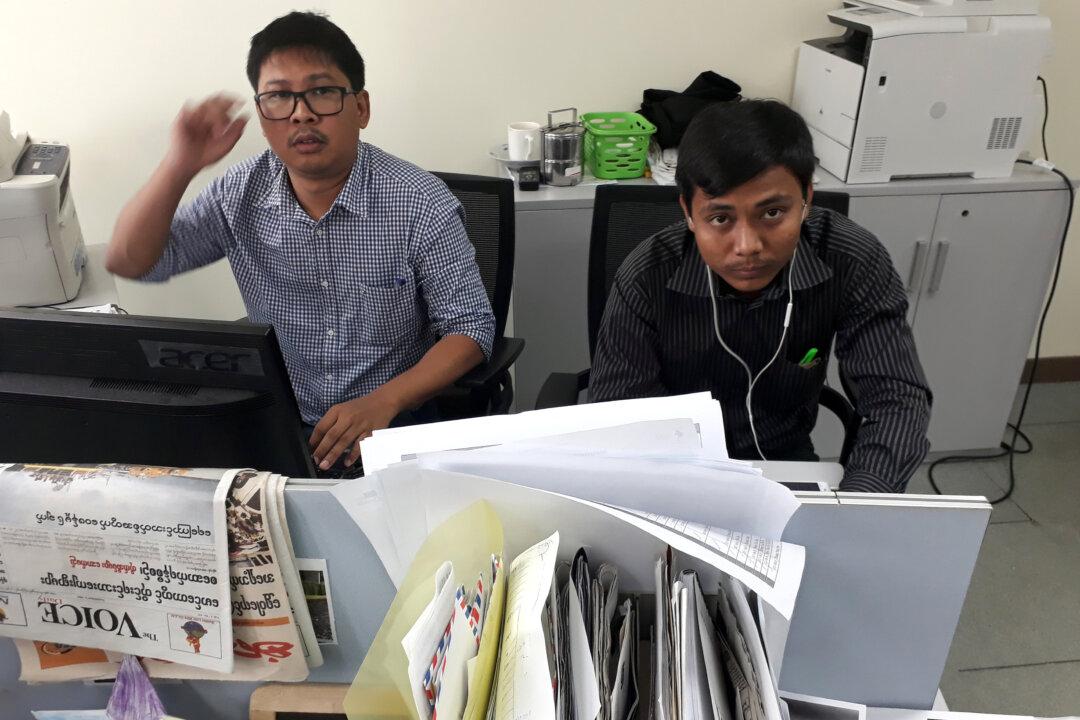YANGON–Burma’s government said on Wednesday that police had arrested two Reuters journalists, Wa Lone and Kyaw Soe Oo. The reporters had been working on stories about the long conflict and horrific humanitarian situation still unfolding in Burma’s Rahkine State that has caused almost 650,000 Rohingya to flee to neighboring Bangladesh.
The Ministry of Information said in a statement on its Facebook page that the journalists and two policemen face charges under the Official Secrets Act. The 1923 law established during Burma’s British colonial-era carries a maximum prison sentence of 14 years.





